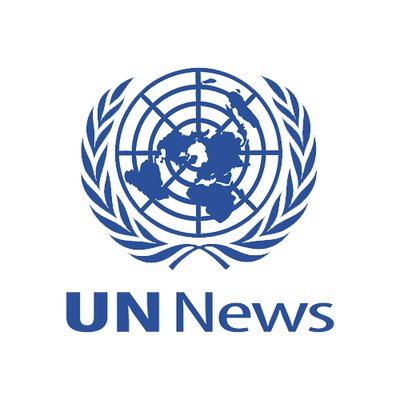“Sudan is experiencing a humanitarian catastrophe of epic proportions. It's a living nightmare for children,” Mandeep O’Brien said this week in an interview with UN News.
Nearly 10 months have passed since clashes erupted between the Sudanese Army and a rival group known as the Rapid Support Forces (RSF), leaving14 million children in desperate need of lifesaving assistance.
Child displacement crisis
Ms. O’Brien said the fighting has sparked the world’s largest child displacement crisis. More than 3.5 million boys and girls have fled their homes for safer locations, with some uprooted several times.
The bad news continues as more than 7.4 million young Sudanese do not have access to safe drinking water, putting them at risk of waterborne diseases, and nearly two million are in urgent need of lifesaving vaccines.
Sudan also has one of the highest rates of child malnutrition in the world. More than three million under-fives suffer from acute malnutrition, and 700,000 could die from its severest form unless they receive medical treatment.
Classrooms in the crosshairs
Furthermore, 19 million school-age children are not in the classroom, putting Sudan at risk of becoming one of the worst learning crises in the world.
“Imagine the future of this country if children are not being able to learn,” Ms. O’Brien remarked. “We estimate that if this continues, Sudan would be facing a $26 billion lifetime earning loss.”
Education is a powerful tool for building peace “because when children are in classrooms, they feel safe, protected, and they can peacefully co-exist,” she said.
“These are values that we shouldn't take for granted. These are values that have to be lived and practiced by children.”
Open schools, pay teachers
UNICEF has been pushing for Sudanese federal and state authorities to re-open schools, but Ms. O’Brien pointed to another barrier to education.
For that to happen, teachers need to be paid,” she said. “Sadly, since the onset of this war, teachers and other frontline workers have not been paid their salaries, so this has to happen.”
In the interim, UNICEF and partners have been exploring practical solutions and ways to support the safe re-opening of schools where conditions allow, while also working to reach more young learners.
Expanding the ‘learning loop’
“For huge numbers of kids who cannot go to school, who were not registered or enrolled in schools prior to the conflict, we're trying to bring as many kids as possible into the learning loop, into alternative ways of learning,” she said.
To address their needs, UNICEF and partners have launched child-friendly spaces at gathering points for internally displaced people.
Known as makanna – Arabic for “our place” – these are locations where children can feel safe and protected while also continuing their education through e-learning and tried and tested low-cost digital solutions.
More than 850 makannas have been rolled out across Sudan, reaching more than 250,000 children who also receive psychosocial support to address trauma resulting from the war.
Vaccination campaigns
The conflict has also stretched Sudan’s health system to its limits. UNICEF along with the World Health Organization (WHO) and partners continue to work with the authorities to provide urgently needed services amid disease outbreaks, in addition to carrying out child immunization campaigns.
Ms. O’Brien said they have vaccinated more than a million children against measles “which is of great concern and is currently spreading as we speak”.
This week marked the start of a campaign to combat measles and rubella, launched with the support of the Global Alliance for Vaccines and Immunization (Gavi). The aim is to vaccinate more than five million children in seven states by the end of the week and 15 million over the coming months.
Appeal for peace
Although fearing that Sudan risks becoming a forgotten crisis as conflict rages in Gaza and deepens in Ukraine, Ms. O’Brien underlined UNICEF’s commitment to stay and deliver on the ground alongside partners.
Last year, they reached over 6.4 million children and families with urgently needed health supplies and screened more than five million under-fives for malnutrition, treating over 300,000 severe cases.
She appealed for more funding to meet the growing needs of children, women and families.
“Most importantly, we need all international and regional efforts to be joined up so that Sudan can find a political solution to this devastation,” she said.“This war has to stop now. Sudan desperately needs peace.”
Distributed by APO Group on behalf of UN News.
Latest Stories
-
Africa Food Systems Parliamentary Network urges governments to increase investment in agriculture
30 minutes -
AU and partners urge youth to get involved in efforts to transform continent’s food systems
38 minutes -
Fire kills 3-year-old at Asawase-Dagomba Line in Ashanti Region
1 hour -
Paskal A.B. Rois: How Mahama inspires me
1 hour -
Complete abandoned projects in Akatsi North District – Chiefs to Mahama
2 hours -
Painter and sculptor B. Acheampong turning his passion for art into profitable venture
2 hours -
Presidential lodge, RM residency in Ashanti region left to rot away
3 hours -
Herty Corgie highlights the essence of gratefulness in ‘My Gratitude’
5 hours -
ANNOUNCEMENT: Joy FM temporarily goes off air January 11
5 hours -
Yango honored with two titles at the Technovation Africa Awards 2024
5 hours -
Aowin Traditional Council declares war on illegal mining with spiritual intervention
5 hours -
Leadership must ensure equity for all citizens, regardless of faith – Asiedu Nketiah
5 hours -
Prof. Alex Manu appointed Executive Director at Centre for Social Justice
5 hours -
Imminent changes within some key security agencies, state institutions, and its implications
5 hours -
There are more women than men, but there’s a man for every woman – Rev. Nana Yaa
6 hours

